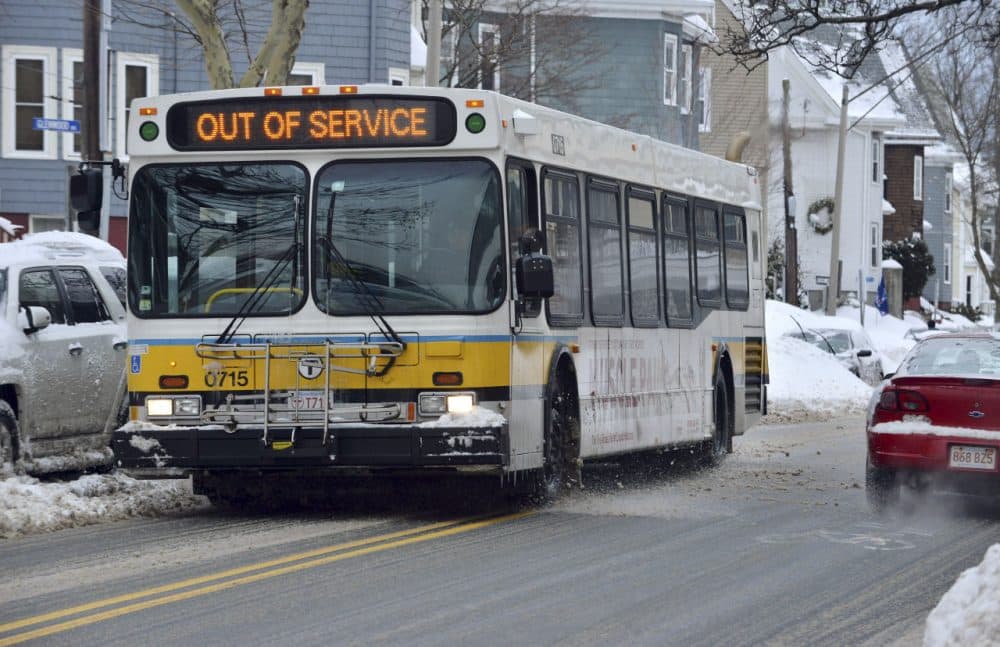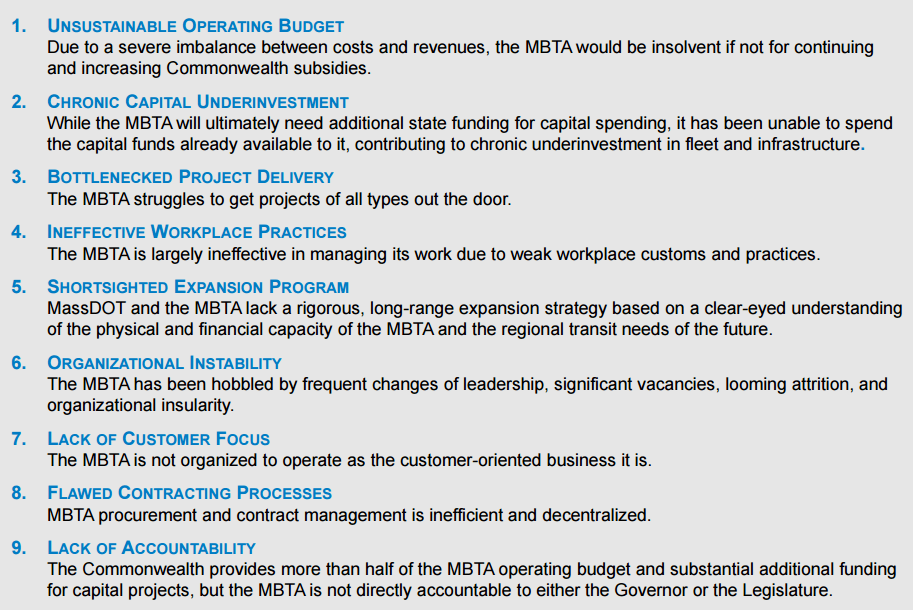Advertisement
Report Blasts MBTA Management, Calls For Fiscal Control Board
Resume
A panel appointed by Gov. Charlie Baker to review the MBTA says the long-troubled transit system is in "severe financial distress," lacks a "viable maintenance plan," and is "governed ineffectively."
“Fixing the system … will require major management changes and reform,” Baker said at a State House press conference Wednesday, when his panel's sweeping 50-page report was made public.
The panel recommends temporarily replacing the MassDOT board with a fiscal and management control board to oversee all aspects of the T for three to five years. Three of its five members would be appointed by the governor, according to the report's recommendations, and the other two nominated by the speaker of the House and the Senate president.
“There is a pervasive organizational failure at the MBTA,” Katie Lapp, co-chair of the T panel and former CEO for the New York Metropolitan Transportation Authority, said at the press conference.
But, Lapp added, "I want to be clear that the panel rejects the 'reform versus revenue' debate because we feel strongly the MBTA needs both.”
Revenue, however, did not seem to be the immediate priority.
The report said the T suffers from chronic under-investment in infrastructure, and it suggested the state Legislature lift the cap on raising MBTA fares, but it did not address major streams of potential revenue or concerns about overcapacity.
“I think it’s very hard to answer the quote ‘additional revenue’ question until you answer the existing revenue question,” Baker said, referring to information in the report that suggested the MBTA had not spent all the funds appropriated in its capital budget during the past five years.
“In the past five years, the MBTA spent only $2.3 billion of the $4.5 billion it had planned to spend on capital construction,” the report said.
The limited focus on revenue raised immediate concern among some analysts, such as former Transportation Secretary James Aloisi, who said the report feels like a missed opportunity.
"[The administration] knows everybody can agree on adopting best management practices, that's the easy part," said Aloisi. The difficult conversation, he said, is getting kicked down the road again.
There's a different concern for Rafael Mares, an attorney at the Conservation Law Foundation.
"I think there is a lot of description of the symptoms and less description of the causes of the problems," he said.
The advisory panel was created by Baker back in February after a series of severe snowstorms crippled the transit system this winter, causing widespread delays, suspended service and headaches for riders.
"The catastrophic winter breakdowns were symptomatic of structural problems that require fundamental change in virtually all aspects of the MBTA," the report said.
The panel reviewed past studies on the MBTA, toured T maintenance and operations facilities, and met with current and past transit staff and officials over six weeks to develop its findings.
Among its findings, the panel said the MBTA lacks accountability and customer focus and has an unsustainable operating budget. Here are the panel's nine key findings (click to enlarge):

The report makes several recommendations to address these issues, including: seeking fare hikes and capturing additional revenue opportunities; developing a 20-year capital plan to completely restore and modernize the T; cracking down on high absenteeism among employees; and stopping the practice of paying some employees with money from the system's capital budget.
The report also calls on the Legislature to review the T's collective bargaining process, which it says "creates inefficiencies and has delayed recent legislative reforms."
It also says the state should consider assuming the remaining $1.8 billion debt associated with Big Dig transit projects.
This article was originally published on April 08, 2015.
This segment aired on April 9, 2015.

